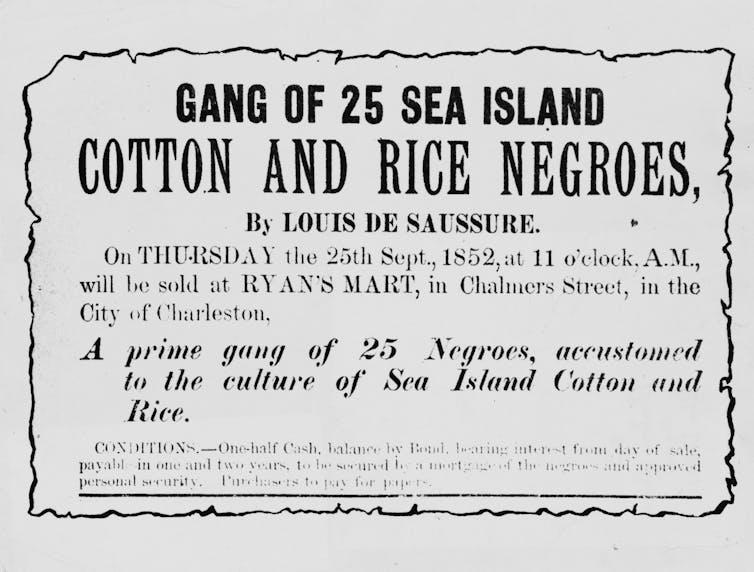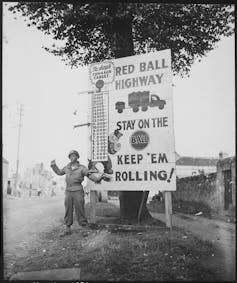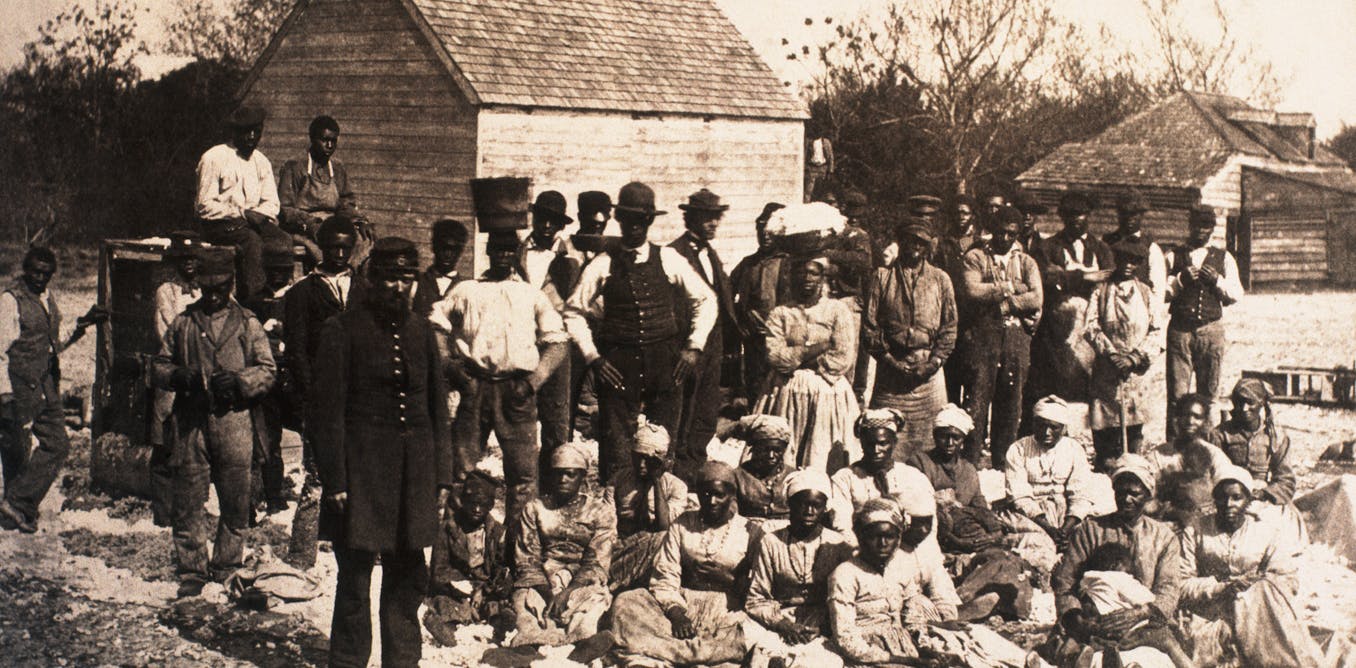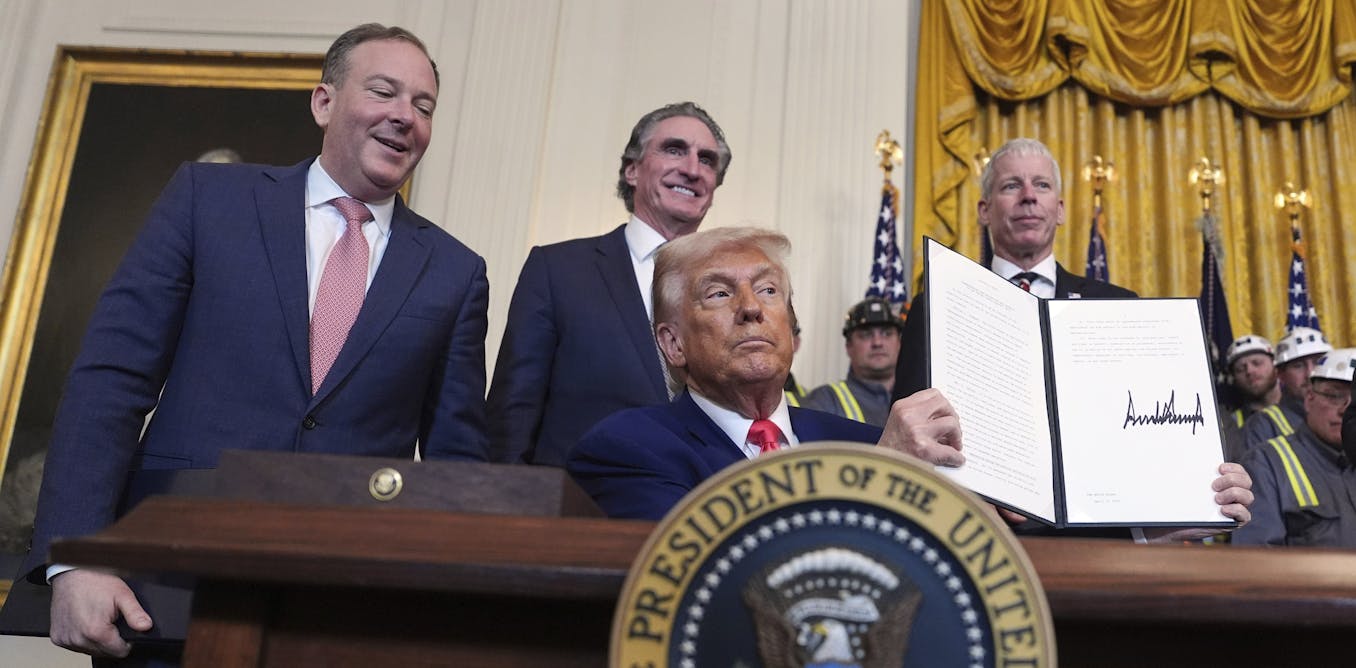As Americans rejoice Juneteenth, legislation for a commission to examine reparations for harms ensuing from the enslavement of almost 4 million individuals has languished in Congress for additional than 30 decades.
Even though The us has yet to start compensating Black Us residents for earlier and ongoing racial harms, our new investigation published in the Russell Sage Basis Journal in June 2024, refutes one particular of the critical arguments versus making reparation payments – that they would be as well complicated and costly for the federal federal government to administer.
We learned hundreds of situations and analyzed more than 70 applications in which the federal government pays what we phrase “reparatory compensation” to tens of millions of People.
The lengthy history of US payment
Due to the fact the 1930s, the U.S. government has built payments for quite a few varieties of nonracial harms, such as individual injury, health issues, disease, fiscal loss, pure disasters, market place failures and social injustices.
In 1988, for case in point, the U.S. govt compensated reparations to Japanese Individuals – and in some situations, their descendants – who had been pressured into internment camps for the duration of World War II.
History/Universal Images Team by way of Getty Images
In another instance, setting up in the 1990s, Congress passed a series of legislation to compensate persons in 12 western states and the Marshall Islands who have been exposed to unsafe levels of radiation from the government’s nuclear tests software that transpired in the 1940s and 1950s. Considering that 1990, these packages have compensated some 135,000 victims and paid out US$28 billion to these victims and to some of their heirs.
The usa has paid compensation to coal miners who have contracted lung ailments, farmers who have endured crop failures and fishermen struggling with depleted fish stocks.
The federal federal government has also paid out compensation to victims of terrorism, wrongful convictions and organic disasters.
It also has paid out partial restitution to 1000’s of descendants of Native American tribes, whose tribal land earnings were being stolen or mismanaged dating back again to the 1880s.
Without a doubt, the federal government has extensive attempted to compensate people today – and in certain situations entire communities – by a blend of restitution, economical benefits and rehabilitation.
These packages price tag billions of dollars on a yearly basis and are funded in a wide variety of means, like unique excise taxes, the use of federal government have confidence in money and sponsored insurance policy policies.
We have determined that the variety, scale and complexity of federal programs and beneficiaries demonstrate that reparations are administratively feasible. Although only a few of these packages deal with racial injustice, they all reveal the government’s capability to administer big-scale programs of payment for all those instantly and indirectly harmed.
The ongoing harms to Black People
The harms of slavery did not conclude on June 19, 1865, the working day regarded as Juneteenth when enslaved Black men and women in Galveston, Texas, eventually realized of their liberty – very well right after the Emancipation Proclamation enacted by President Abraham Lincoln in 1863.
The harms continued during the Jim Crow era of legalized segregation and can be noticed in today’s disparate outcomes in wellness, prosperity, housing, work and instruction.

Kean Collection/Archive Pictures by way of Getty Visuals
Among the the most uncompensated victims of racial hurt are Black veterans.
Following the Civil War, the federal government manufactured a guarantee to all previously enslaved folks and, in specific, Black veterans: a armed forces pension and reparations in the type of 40 acres and a mule.
The government then reneged on its promise of land, mules or any other restitution – even as it distributed tens of millions of acres of western land to typically white settlers for totally free, less than the Homestead Act.

National Archives
Black adult men who fought in Entire world War II and the Korean War suffered the exact same treatment. The 1944 GI Invoice enabled tens of millions of white veterans – which include several doing work-course European immigrants – to purchase properties and secure skills that led to better-spending experienced and trade careers.
But nearly all Black veterans were being denied those people gains.
Taken all alongside one another, the harms endured by Black folks above many generations have manufactured a $14 trillion prosperity gap involving Black and white Individuals.
Righting the wrongs of the earlier
Even though a the vast majority of Individuals oppose paying out reparations for the wrongs of slavery, a 2021 University of Massachusetts/Amherst poll clearly show that 57% of all voters age 18 to 29, and 64% of Democrats, support reparations to the descendants of enslaved males and women of all ages.
What’s more, the poll identified, a substantial p.c of those who are opposed to reparations say it’s because they absence self-assurance in the government’s ability to design a honest software.
Our exploration into current compensation proves that the authorities has the skill and experience to do this.
The question in our watch is irrespective of whether the nation has the will to take a look at the very long-enduring harms from slavery – and to commence to mend people wrongs.




